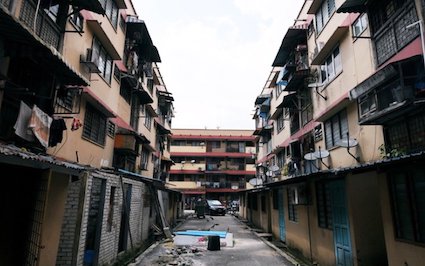UN expert questions Putrajaya’s claim of eradicating poverty

(FMT) – A United Nations (UN) human rights expert has called into question Putrajaya’s claim of eradicating poverty, saying the government uses a low poverty line that fails to reflect the actual conditions of the country.
UN Special Rapporteur Philip Alston said the official poverty line does not portray the cost of living in the country and excludes vulnerable populations in its official figures.
“While Malaysia has achieved undeniable impressive growth in reducing poverty in the last 50 years, the official claim that poverty has been eradicated or exists merely in small pockets in rural areas is incorrect and has crippled policymaking,” he said in a statement here today after an 11-day visit.
The national poverty line is currently set at RM980 per household per month, which would mean a family of four surviving on RM8 for each person per day.
Alston called it a “tragically low line”, adding that the actual poverty rate of the country is much higher than the official numbers state.
He mentioned meeting families who could not afford to pay their rent, or send their children to school, and who forego healthcare because they cannot afford transportation.
“Despite near-universal healthcare and high school enrolment rates for citizens, and a growing economy, large parts of the population are being left behind and many people living above the official poverty line are in fact in poverty,” he said.
Alston also said that most of the Malaysian indigenous people suffer from poverty, adding that non-citizens such as refugees, migrants and stateless people are excluded from the official statistics.
Poor people in Malaysia are also more prone to suffer from civil and political rights violations, such as in prisons and in the legal system, he said.
He called on Putrajaya to review the mechanism of measuring poverty to acknowledge and address the hardships of many Malaysians.
“Malaysia has made real progress on a range of progressive commitments, but the new government should not deny the existence of the poor and marginalised.
“Instead, they should step up efforts to fulfill their rights.
“The Malaysians I met who were struggling to get by or to provide support to those in need deserve better than to be told by policymakers that poverty does not exist, in direct contradiction of their own experiences,” he said.
Alston visited Kuala Lumpur, Selangor, Sabah, Sarawak and Kelantan, and met government officials, international agencies, civil societies, academics and people affected by poverty in both urban and rural areas.
He will be presenting a full report with his recommendations to the Human Rights Council in Geneva in June next year.

